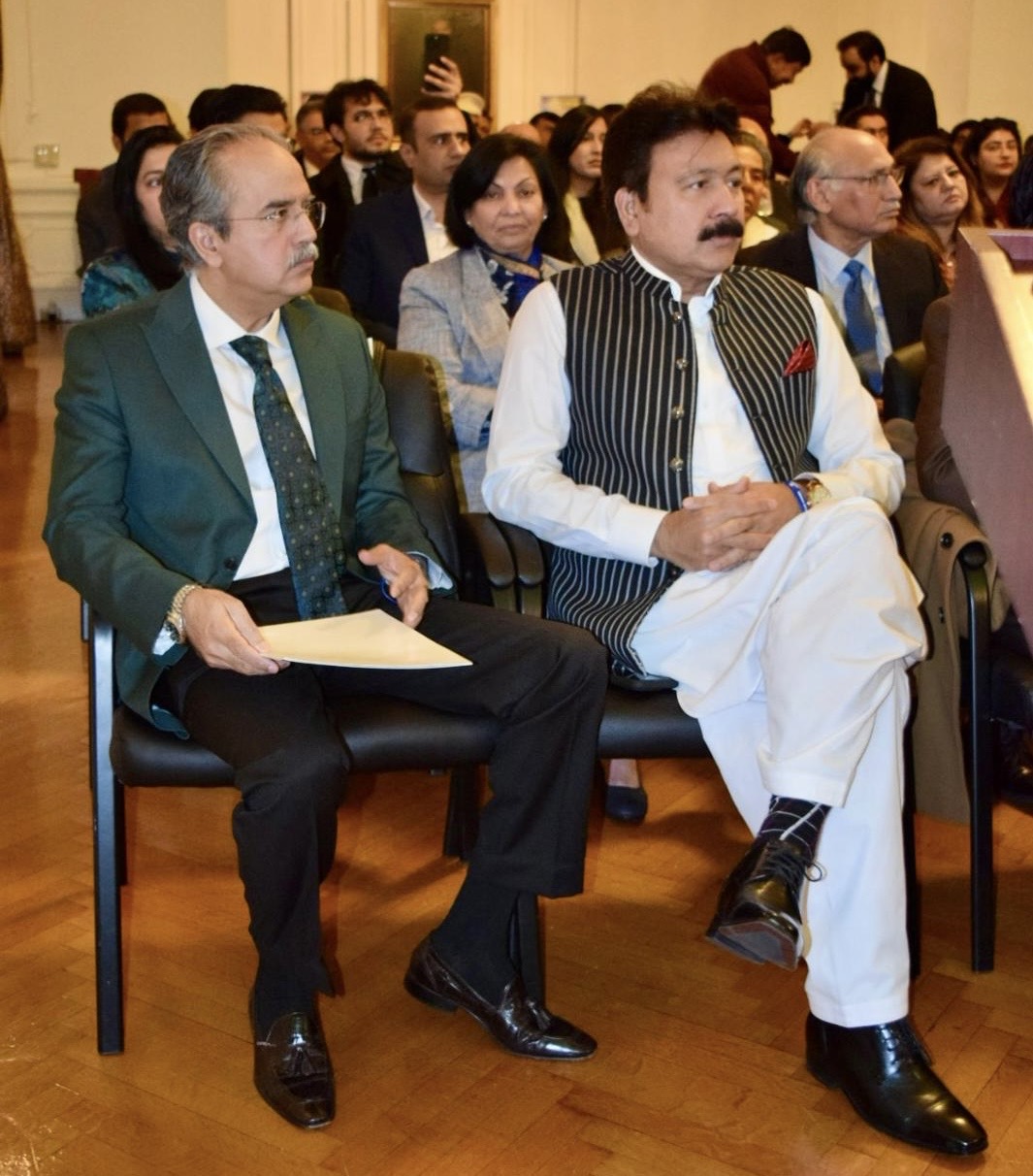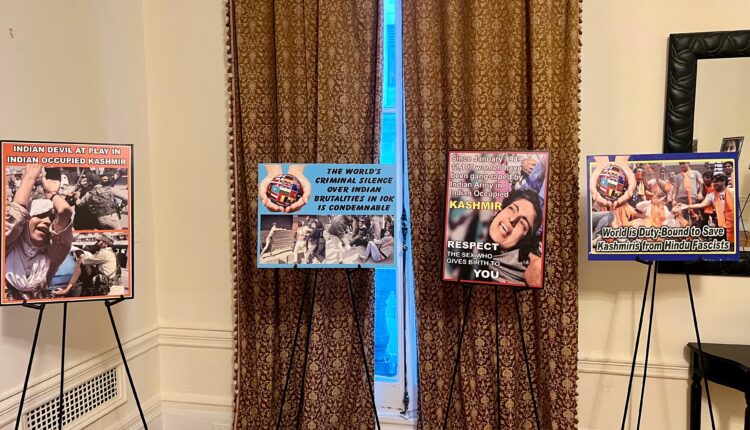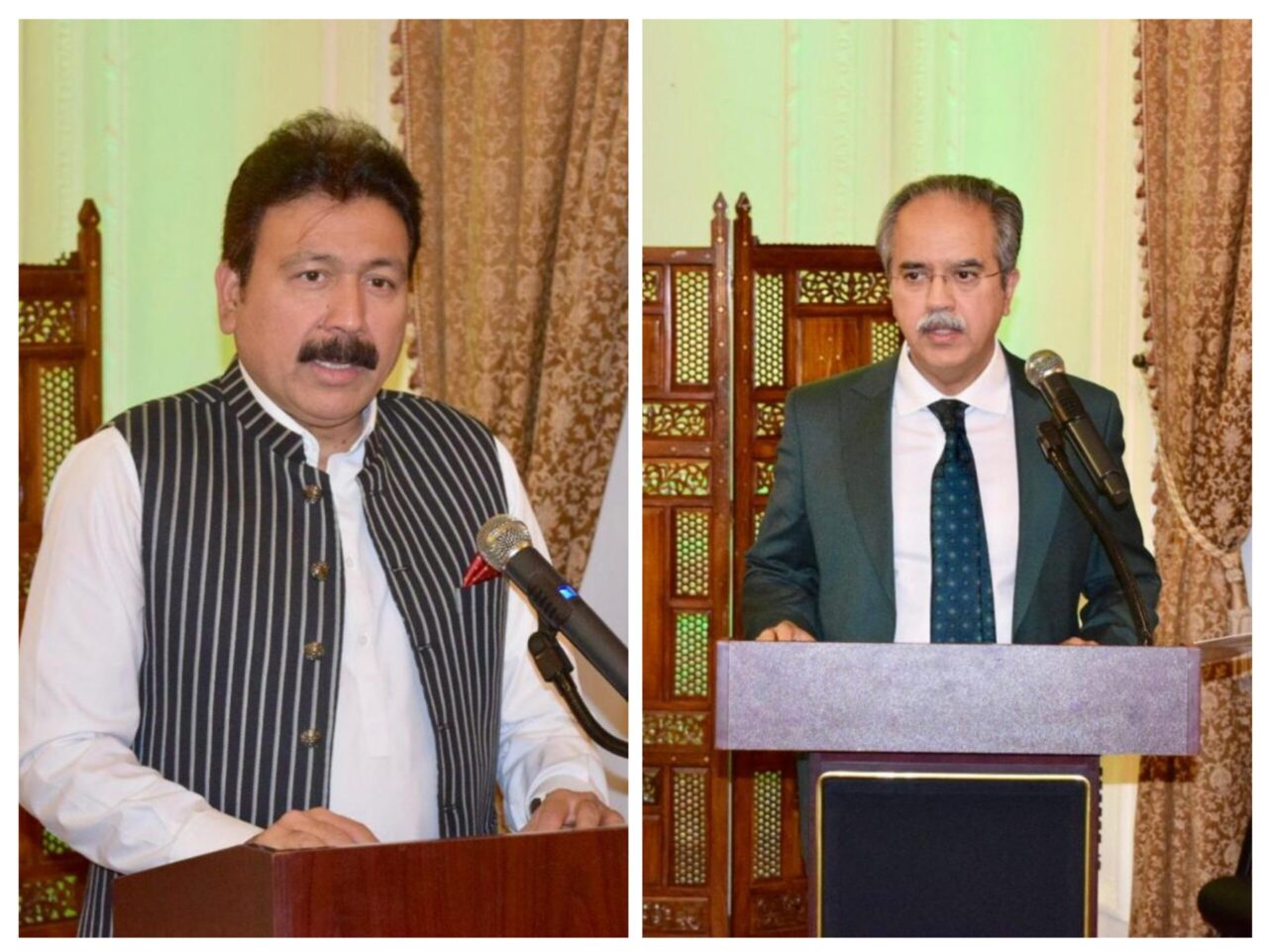NEW YORK: Speakers at a Kashmir Black Day event organized by the Permanent Mission of Pakistan to the United Nations and the Consulate General of Pakistan in New York called on the international community and the United Nations to ensure the implementation of Security Council resolutions on Jammu and Kashmir.
They paid tribute to the resilience and sacrifices of the Kashmiri people and reiterated that sustainable peace in South Asia hinges on a just settlement of the long-standing dispute.
Held under the theme “Demographic Engineering and Colonial-Settler Project in Indian Illegally Occupied Jammu and Kashmir (IIOJK),” the event brought together diplomats, scholars, and members of the Kashmiri diaspora.
Ambassador Asim Iftikhar Ahmad, Pakistan’s Permanent Representative to the UN, reaffirmed Pakistan’s unwavering commitment to the Kashmiri cause. He said Pakistan consistently raises the issue at the United Nations, highlighting human rights violations, the territory’s legal status, and implications for international law.

He condemned India’s unilateral actions since August 2019, describing them as violations of the Fourth Geneva Convention and elements of a “colonial settler project.” Drawing parallels with Palestine, he urged applying international legal principles to the situation in Jammu and Kashmir.
Consul General Aamer Ahmad Atozai, in his welcome remarks, saluted the steadfastness of the Kashmiri people and condemned India’s revocation of Jammu and Kashmir’s special status in 2019. He described it as an attempt to alter the region’s demography and identity, in violation of UN resolutions and international humanitarian law.
Other speakers included Mr. Saud Sultan, researcher and author of “Jammu & Kashmir: The Forgotten Narrative,” Mr. Ejaz A. Sabir, legal expert and founder of Sabir Law Group, Sardar Sawar Khan, veteran Kashmiri leader, Raja Mukhtar Khan, spokesperson for JKLF USA, and Mr. Muhammad Taj Khan, Kashmiri activist.
Mr. Saud Sultan examined the Kashmir conflict through the lens of settler colonialism, urging renewed intellectual engagement with the authentic Kashmiri narrative.

Mr. Sabir outlined the legal basis for Kashmir’s disputed status under international law, while Sardar Sawar Khan and Raja Mukhtar Khan revisited the historical and political dimensions of the dispute, asserting that Kashmir’s majority Muslim population had always aspired to join Pakistan. Taj Khan warned of growing Indo-Israeli collaboration in enforcing oppressive policies in IIOJK.
The event concluded with the reading of messages from Pakistan’s President and Prime Minister. Mr. Saud Sultan presented his book to Ambassador Asim Iftikhar Ahmad and Consul General Aamer Ahmad Atozai.


Comments are closed.